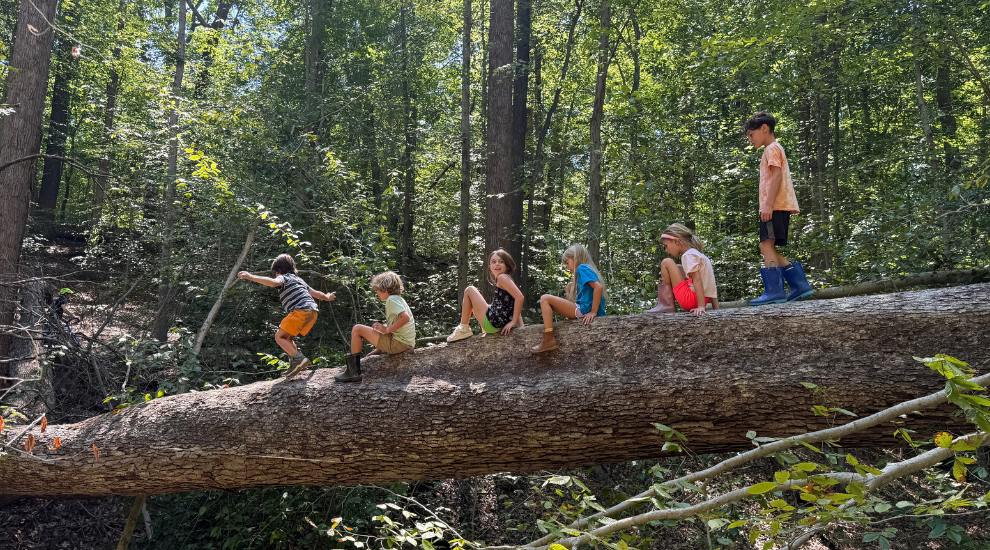
Sixth graders in Henrico County Public Schools are learning how to become environmental stewards of Virginia’s watersheds thanks to a new initiative funded by a $449,224 grant from the National Oceanic and Atmospheric Administration.
NOAA’s Bay Watershed Education and Training Program funds about thirty similar projects a year in the Chesapeake Bay watershed region. “NOAA’s interest is in supporting the 2014 Chesapeake Bay Agreement goal of providing every student in the Bay watershed with a meaningful watershed educational experience (MWEE) in elementary, middle and high school,” says Andrew Larkin, senior program analyst for the NOAA Chesapeake Bay Office. “We hope these experiences will improve students scientific and environmental literacy and create the next generation of Chesapeake Bay stewards.”
Maymont was chosen for a grant because “it had a clear purpose and plan to deliver these experiences to students and teachers,” says Larkin. “It also had strong support from its partners.”
The initiative represents a 3-year collaboration between Maymont, Henrico County Public Schools, the Alliance for the Chesapeake Bay, Virginia Commonwealth University School of Education, Henricopolis Soil and Water Conservation District, and Keep Henrico Beautiful with support from WCVE Science Matters.
The idea for the initiative started last fall after Krista Weatherford, director of programming and community engagement for Maymont Foundation, talked with teachers at Hungry Creek Middle School. “We started the process in January and we were notified officially in August,” Weatherford says of the application process.
Students will travel to Maymont to learn about the James River and Chesapeake Bay Watersheds as part of the program. “They will do water quality testing and habitat assessments as well as learn about the animals that live in and around the James,” Weatherford says, noting students will then go back in the classrooms and plan a student action project.
The program will extend to all twelve middle schools in the Henrico County Public Schools system. It will be a significant component of HCPS’s current Science, Technology, Engineering, Arts and Math (STEAM) curriculum.
“Research supports the ideas that meaningful watershed educational experiences (and participating in the specific scientific inquiry steps) increase student’s environmentally responsible behaviors and intention to act,” Larkin says. “Research also supports the claim that students who participated in environment-based education programs outperformed their traditionally educated peers in reading, spelling, language and math.”
Maymont has done “meaningful watershed projects before but not on this scale,” Weatherford says. “We’ve never done full grade level for a school system so this is very exciting.”




